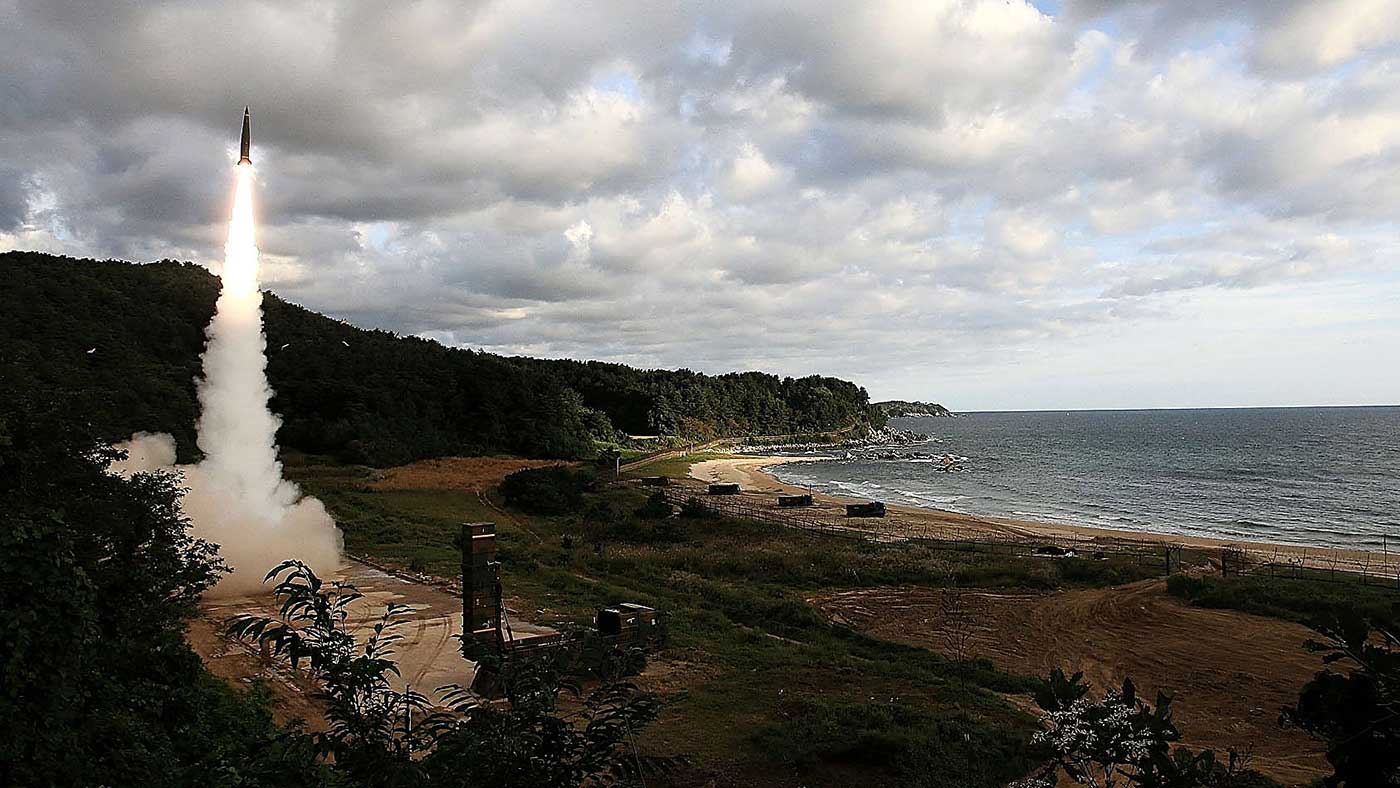North Korea fires second missile over Japan
Provocative launch comes days after sanctions tightened against Pyongyang

A free daily email with the biggest news stories of the day – and the best features from TheWeek.com
You are now subscribed
Your newsletter sign-up was successful
North Korea has launched a ballistic missile over northern Japan, the second such launch in less than a month, triggering missile alert systems.
The missile travelled about 3,700km and reached an altitude of 770km, passing above the Japanese island of Hokkaido, before splashing into the Pacific Ocean.
“The unidentified ballistic missile was launched from the district of Sunan in the North Korean capital of Pyongyang, home to the country’s main airport,” CNN reports.
The Week
Escape your echo chamber. Get the facts behind the news, plus analysis from multiple perspectives.

Sign up for The Week's Free Newsletters
From our morning news briefing to a weekly Good News Newsletter, get the best of The Week delivered directly to your inbox.
From our morning news briefing to a weekly Good News Newsletter, get the best of The Week delivered directly to your inbox.
“The US Pacific territory of Guam, which North Korea claims to have plans to fire missiles towards, is 3,400km from Pyongyang, so would be within range of the latest missile,” the BBC says.
South Korean leaders “immediately convened a National Security Council meeting, as the country’s troops conducted a ballistic missile training in the East Sea in response to the North's latest provocation”, Yonhap News says.
Speaking to reporters, Japanese Prime Minister Shinzo Abe said the launch was “totally unacceptable” and went against “the international community's strong, united will for a peaceful solution.”
“The United States secretary of state, Rex Tillerson, has called on China and Russia to take ‘direct actions of their own’ against North Korea,” The Guardian says.
A free daily email with the biggest news stories of the day – and the best features from TheWeek.com
The launch comes just days after the United Nations imposed its toughest sanctions yet against North Korea, following Pyongyang’s sixth and largest nuclear test.
-
 5 blacked out cartoons about the Epstein file redactions
5 blacked out cartoons about the Epstein file redactionsCartoons Artists take on hidden identities, a censored presidential seal, and more
-
 How Democrats are turning DOJ lemons into partisan lemonade
How Democrats are turning DOJ lemons into partisan lemonadeTODAY’S BIG QUESTION As the Trump administration continues to try — and fail — at indicting its political enemies, Democratic lawmakers have begun seizing the moment for themselves
-
 ICE’s new targets post-Minnesota retreat
ICE’s new targets post-Minnesota retreatIn the Spotlight Several cities are reportedly on ICE’s list for immigration crackdowns
-
 US, Russia restart military dialogue as treaty ends
US, Russia restart military dialogue as treaty endsSpeed Read New START was the last remaining nuclear arms treaty between the countries
-
 What happens now that the US-Russia nuclear treaty is expiring?
What happens now that the US-Russia nuclear treaty is expiring?TODAY’S BIG QUESTION Weapons experts worry that the end of the New START treaty marks the beginning of a 21st-century atomic arms race
-
 Epstein files topple law CEO, roil UK government
Epstein files topple law CEO, roil UK governmentSpeed Read Peter Mandelson, Britain’s former ambassador to the US, is caught up in the scandal
-
 Iran and US prepare to meet after skirmishes
Iran and US prepare to meet after skirmishesSpeed Read The incident comes amid heightened tensions in the Middle East
-
 Israel retrieves final hostage’s body from Gaza
Israel retrieves final hostage’s body from GazaSpeed Read The 24-year-old police officer was killed during the initial Hamas attack
-
 China’s Xi targets top general in growing purge
China’s Xi targets top general in growing purgeSpeed Read Zhang Youxia is being investigated over ‘grave violations’ of the law
-
 Panama and Canada are negotiating over a crucial copper mine
Panama and Canada are negotiating over a crucial copper mineIn the Spotlight Panama is set to make a final decision on the mine this summer
-
 Why Greenland’s natural resources are nearly impossible to mine
Why Greenland’s natural resources are nearly impossible to mineThe Explainer The country’s natural landscape makes the task extremely difficult